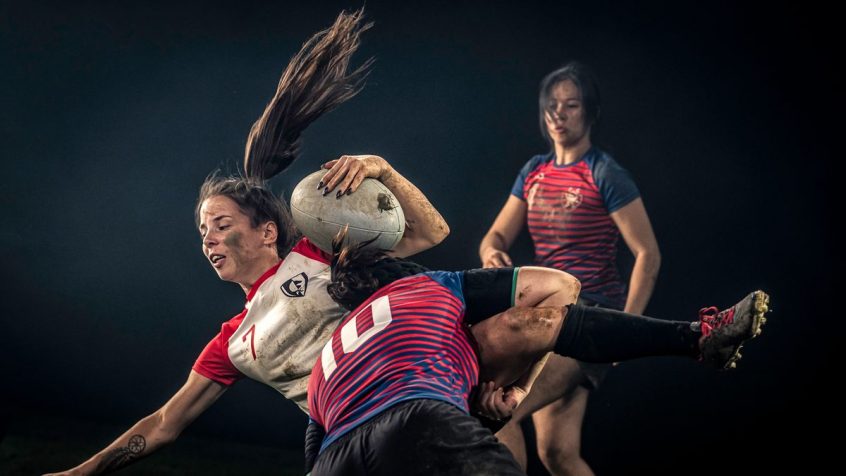What’s good for the goose… Yes, well, could strategies to prevent injuries and boost male rugby players’ resilience be equally good for women?
My instinctive answer would be yes. Why not?
And I’m very glad to hear the Activate programme – a scheme run by rugby union’s ruling body to protect players – will be fine-tuned to help women players avoid injury and recuperate more quickly.
Researchers have made a start by mapping frequency and seriousness of injuries, including concussion, that occur in women’s matches and training sessions in teams across Scotland, England and Wales.
During the two-year study funded by World Rugby, the researchers from Edinburgh, Bath and Cardiff Metropolitan universities will evaluate and adapt the Activate programme so it suits females too.
Activate’s exercise regimes, which are used in training and before matches, aim to improve strength, balance and agility and help players meet rugby’s physical demands.
Players say the regimes boost performance, reduce the risk of injury and support rehabilitation – but its effectiveness varies according to the level of play, age and gender.
While Activate has, for instance, helped reduce lower limb injuries and concussion at men’s senior level, boys rugby has also seen benefits on concussion rates.
Despite these successes, the study team says Activate tends to follow a one-size-fits-all approach and is largely designed for, and tested in, groups of male players.
Differences in injury risk between men and women are well-known.
Rates and severity of concussion, for instance – and how players respond – vary widely, mainly because of the difference in anatomy and nerve supply of the neck between women and men.
Also rates of anterior cruciate ligament (ACL) knee injury in women and girls are three to six times the rate of men and boys.
And, while ACL injury rates for men have dropped they’ve remained unchanged for women.
Dr Debbie Palmer, of the new Edinburgh and Bath IOC Research Centre, believes the study is an important tool that demonstrates Activate’s effectiveness in different settings and for rugby players of all kinds.
“While injury risk differs between males and females it’s also likely that female athletes may respond to prevention initiatives differently,” says Dr Palmer.
“Hence it is important that injury prevention strategies are implemented and objectively evaluated in female cohorts, to reduce injuries and protect athlete health.”
Hear, hear!

